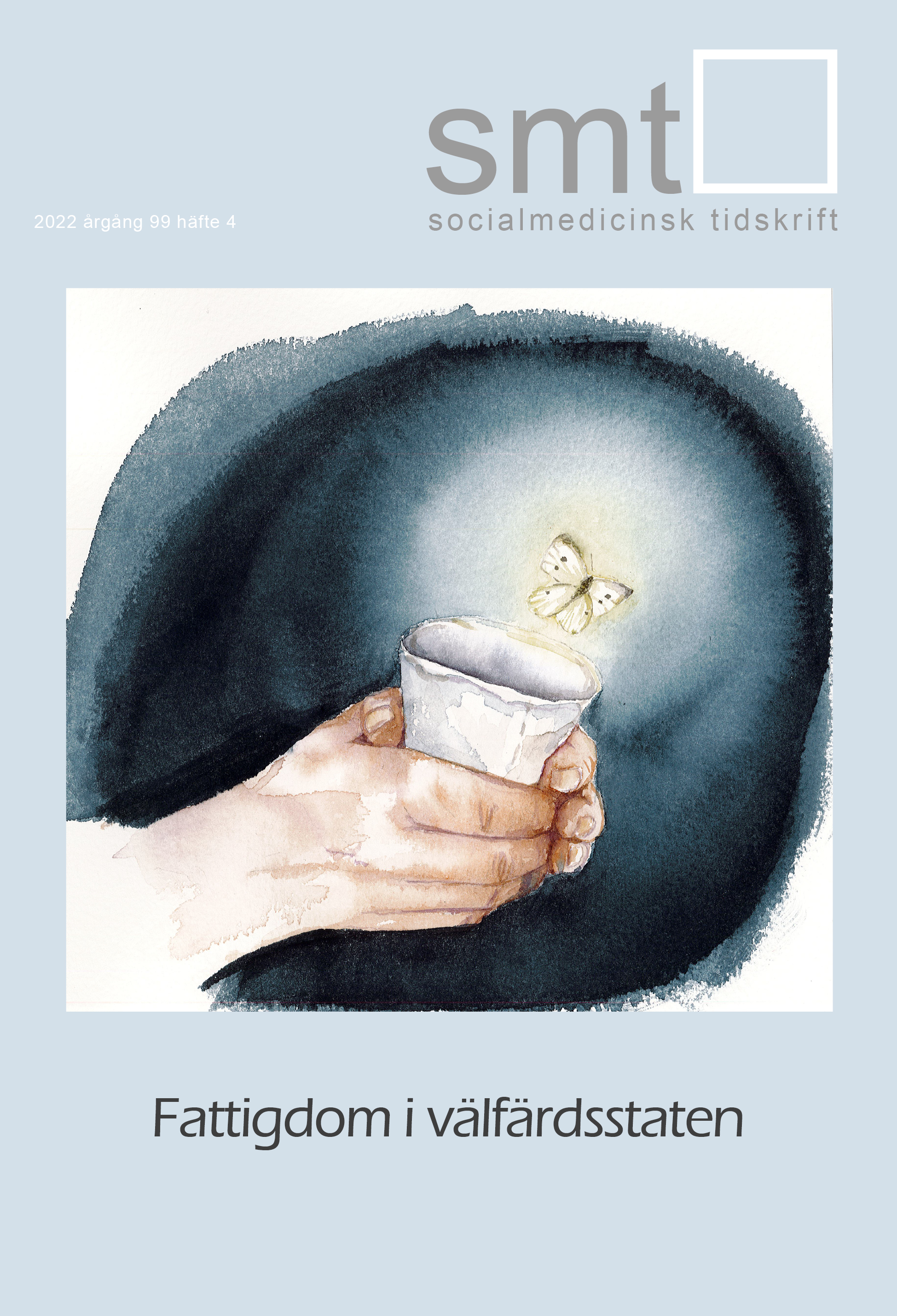Abstract
Mobility of poor people poses a number of challenges to the national welfare state. The article examines a contemporary example of poverty reduction within the EU: Fund for European Aid for the Most Deprived, FEAD. The aim of the article is to provide knowledge about how project staff in FEAD initiatives in Sweden frame their work to meet the needs of poor EU citizens, with a focus on work and self-sufficiency. On the basis of interviews with staff in FEAD projects, the analysis draws attention to how they describe and frame their work with supporting poor EU citizens in Sweden, by framing the problems and needs of the target group, as well as dealing with the frameworks guiding the FEAD activities.

This work is licensed under a Creative Commons Attribution-NonCommercial 3.0 Unported License.
Copyright (c) 2022 Viktor Vesterberg, Magnus Dahlstedt
